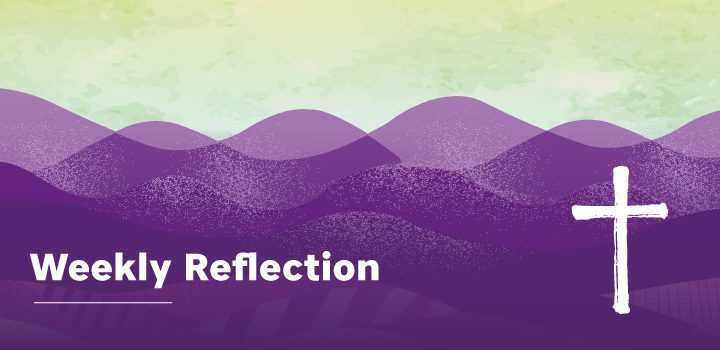

Readings: Deuteronomy 26:4-10; Psalms 91:1-2, 10-11, 12-13, 14-15; Romans 10:8-13; Matthew 4:4B; Luke 4:1-13
[W]e cried to the Lord, the God of our ancestors; the Lord heard our voice and saw our affliction, our toil, and our oppression. — Deuteronomy 26:7
Metanoia: a journey to change our hearts and ways
The season of Lent is a time for us to change our hearts, our ways and our minds and to focus them on Christ. During this first week of Lent, the scriptures speak to us of the temptations and desires of this world, our human frailty, and our need for Jesus in our lives to help us fight the obstacles presented by Satan.
In the Book of Deuteronomy, Moses reminds the Israelites of the greatness and goodness of God manifest in His Creation and through “signs and wonders” (Deuteronomy 26:8). Moses also calls them to remain steadfast to God’s plans and reminds them that the “Lord heard our voices and saw our affliction, our toil, and our oppression” (Deuteronomy 26:7). If God can see all this pain, suffering, and oppression, should we not also see those of our sisters and brothers in the Global South?
Pope Francis reminds us that we must be aware of the “signs of the times.” This includes being attentive and proactive in responding to the cries for change of all Creation. In the ongoing People and Planet First campaign, we continue to respond to the needs of those in the Global South, notably in Cambodia, Madagascar and Honduras.
Many Indigenous communities, lacking proper land titles, find their territories encroached on by business. In the same way that the Israelites were oppressed by the powerful, many Indigenous communities in the Global South are oppressed by corrupt or unsympathetic governments and enterprises that unscrupulously exploit the land and the people. In the spirit of ecological conversion, let us ask God to enter our hearts, so that we may see the afflictions and oppression of those who suffer and act to alleviate them. As a psalm arranged by Marty Haugen beautifully beseeches, “Be with us Lord, when we are in trouble.”
Akin to the spirit of ecological conversion is the metanoia that this Sunday’s Gospel invites us to experience. “Metanoia” is a Greek term that describes a spiritual conversion resulting from changing one’s way of life toward Christ. In the Gospel, we are reminded of metanoia as Jesus denounces worldly temptations.
In the first temptation, Satan askes Jesus to turn stones into loaves of bread. Jesus’s reply, “One does not live by bread alone” (Luke 4:4), reminds us that we need more than material things on this Earth. In Canada, many of us rarely ask where our material products come from; and many in the Global South become victims of unconscious consumption. Because it does not sustainably and equitably value the labour of people in the Global South, our hyper-capitalist consumption degrades the dignity of the human person. At what cost do our material products come? And have they become more important than the love for our neighbour?
With a spirit of stewardship, let us build within us an ecological conversion. Let us turn our minds and hearts to reducing and reversing the harms caused by our capitalist consumption with a view to putting People and Planet First.
Sisters and brothers in Christ, may we be guided by the Holy Spirit in the desert of our lives to better discern our actions, and to resist the temptations of structural sin. For the love of God, may we make righteous decisions; denounce temporary worldly passions; pursue what is just; and value and uplift the dignity of our neighbours.

